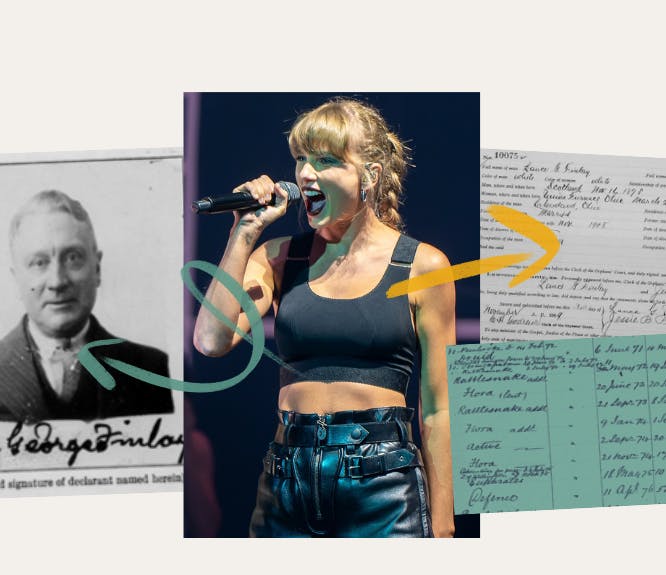Are you descended from a Mayflower Pilgrim?
4-5 minute read
By Niall Cullen | September 6, 2020
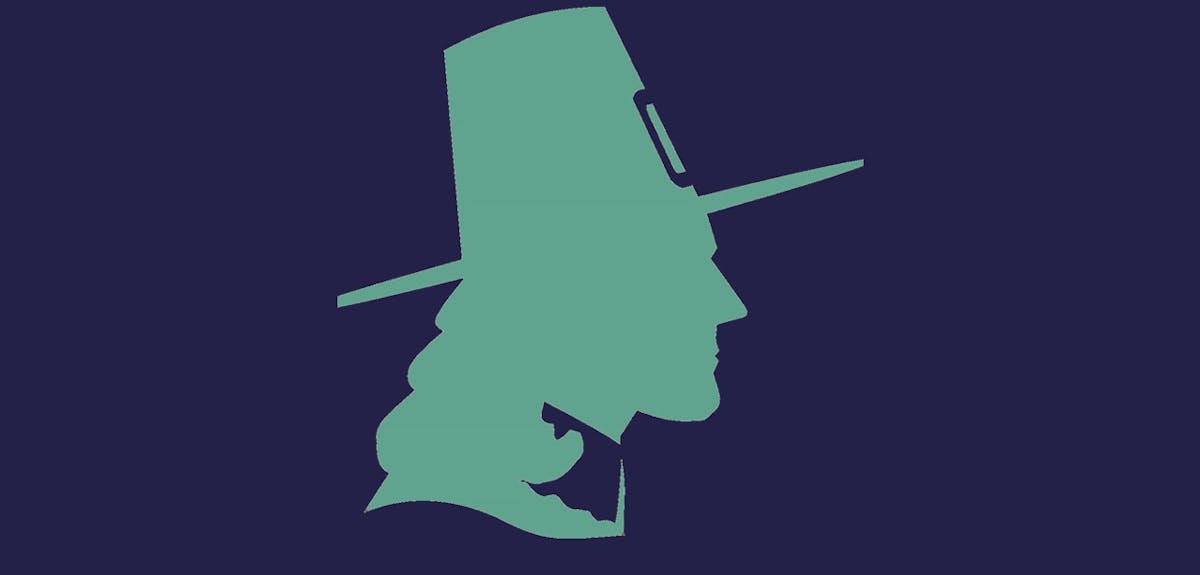
The good ship Mayflower set sail for America in September 1620. Was your ancestor on board?
The Mayflower departed from Plymouth, England on 16 September 1620 (6 September on the old Julian Calendar). There were 102 passengers and around 30 crew members on board. After 66 days, the famous ship dropped anchor at Cape Cod, Massachusetts and the first English Pilgrims caught sight of the New World.
A year on from the ship’s arrival, the Pilgrims celebrated their colony’s first fall harvest. This became known as Thanksgiving.
The story of the Mayflower has become the stuff of legends in the United States and across the globe. As such, you may wonder if you could be descended from those who travelled onboard.
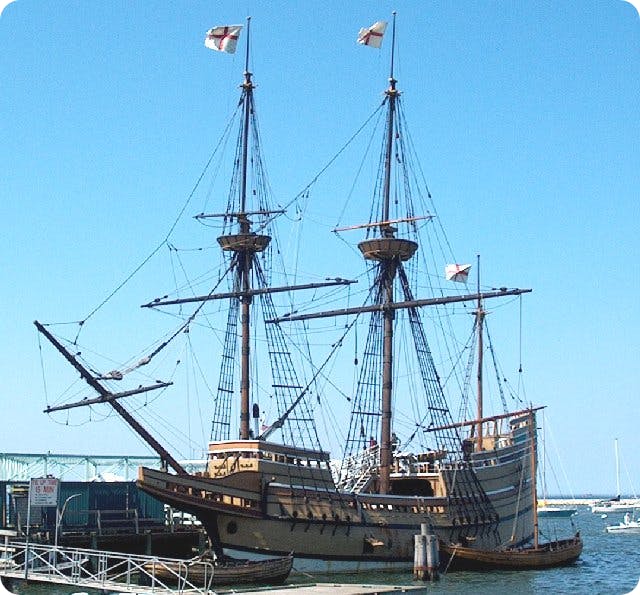
Mayflower II, a replica ship docked in Plymouth, Massachusetts.
According to the General Society of Mayflower Descendants, up to 10 million Americans and 35 million people worldwide could have connections to the famous ship.
Mayflower passenger lists
Some of the Mayflower’s 102 passengers were families travelling together. Others were working men who left their families behind. There were 74 female passengers and 28 males. Over a third of those on board were Puritan separatists.
During the voyage, the Pilgrims signed the historic Mayflower Compact, which was later used to govern the colony. It lists the passengers and crew and can be explored right here on Findmypast.
In 1920, marking the 300th anniversary of the ship's voyage, more Mayflower passenger lists were published by Herbert Folger, the historian of the General Society of Mayflower Descendants. The collection not only includes the ship’s passengers but four generations of their descendants too. This makes finding a Pilgrim Father in your family tree much easier.
In his introduction to the collection, Folger stated;
"“It is hoped that the names will arouse the interest of many who were not aware of their Mayflower descent.”"
Could you be one of those who don’t realise they are descended from the Mayflower Pilgrims? Read on for ways to find out.
Who travelled on the Mayflower?
Folger’s records include 22 passengers from whom direct descent had been proved at the time of publication.
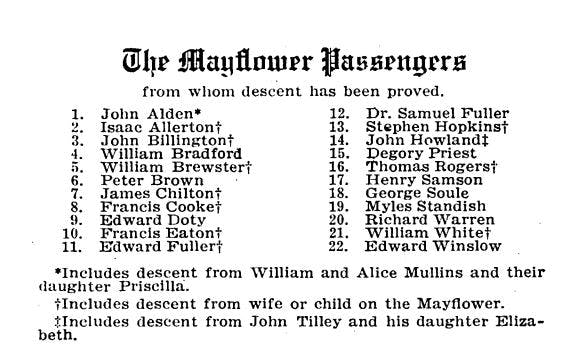
William Bradford’s diaries and letters are the main primary source of information on the ship’s voyage and life in the Plymouth colony. They are widely regarded as the most detailed first-hand accounts that survive from a Mayflower passenger. Bradford would also become governor of the colony.
Two baby boys were born on board the Mayflower ship. Stephen and Elizabeth Hopkins welcomed their son Oceanus during the voyage. Peregrine White was born to parents William and Susanna while they were docked in Cape Cod Harbour in November 1620. He was the first European born to Pilgrims in America.
Mary Allerton became the longest-living Mayflower passenger. She was just three years old during the famous voyage and died in 1699.
Around half of the passengers died during their first winter in the New World.
It’s estimated that the Mayflower had around 30 crew members, led by Captain Christopher Jones. They included a surgeon, carpenter, cook, and gunner. Many of the crew died while remaining with the ship during the winter of 1620-21. Those that survived returned to London on it in April 1621.
It’s also thought that a handful of dogs, goats, pigs and chickens would have travelled on board the Mayflower.
Second generation descendants
Folger’s records also include the names of men who married the daughters of Mayflower passengers. Numbers beside each name denote which original Pilgrim family those men married into.
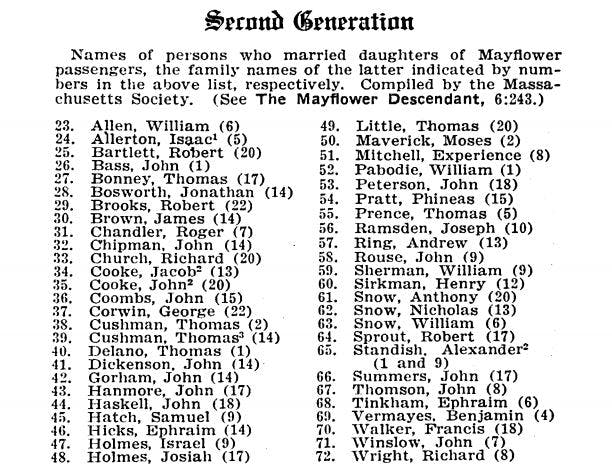
For example, from the above, we can see that William Allen married the daughter of original Pilgrim, Peter Brown. This makes it easier to make connections as you delve deeper into your family tree.
Third generation descendants
As with all family research, as you get further, the number of names multiplies. The third generation of Mayflower descendants in Folger’s collection includes the names of men who married granddaughters of the Pilgrims.
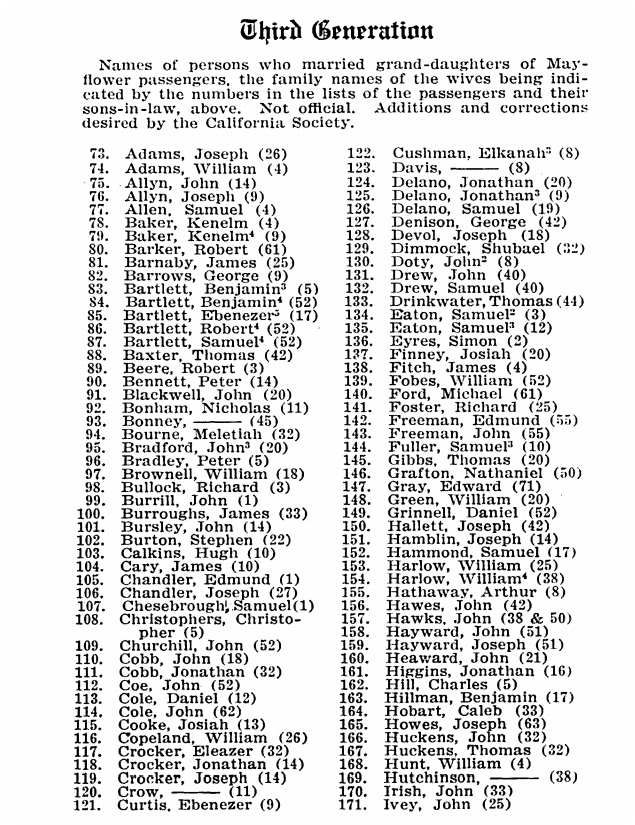
Over 240 names are included however, he notes that this was an unofficial list, and verification was needed.
Fourth generation descendants
Finally, the California Society of Mayflower Descendants compiled a list of fourth-generation relatives, listing the family they joined from previous generations.
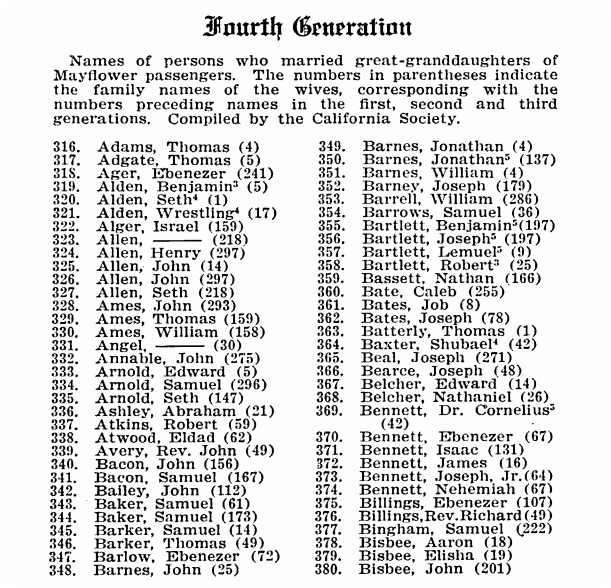
There are over 750 men included. All of them married great-granddaughters of Mayflower passengers.
Where else can you look?
Herbert Folger’s passenger lists are not the only place you can search for Pilgrim ancestors. We’ve shortlisted other useful sources you can peruse to uncover connections.
Society of Mayflower Descendants
Founded in 1897, the General Society of Mayflower Descendants claims a network of over 150,000 Pilgrim descendants throughout the world. Their mission is simple - the society is;
"“committed to research on the lineal descent of the Mayflower Pilgrims and education about the Pilgrims who travelled aboard the Mayflower in 1620.”"
To join, you need to prove your heritage has a connection to the Pilgrims. Luckily, they provide a handy lineage match form to do just that.
PERSI
The PERiodical Source Index (PERSI) is a compendium of genealogical information packed with publications relating to the Mayflower. A simple keyword search reveals over 5,000 entries.
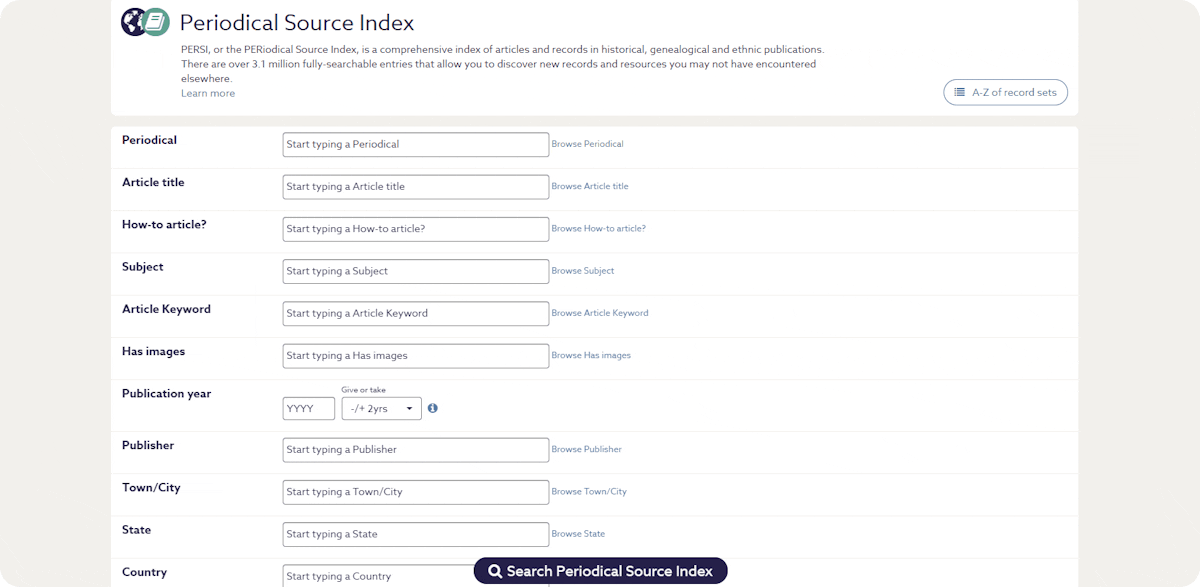
PERSI is a great place for finding the names of other descendants. It’s also really useful for exploring stories about the Pilgrims’ landing and the colony’s first years. Plus, it includes detailed biographies of the Mayflower’s passengers and crew.
Pligrim database
The fifth generation of Mayflower descendants was recently published by The New England Historic Genealogical Society and the General Society of Mayflower Descendants. Members of NEHGS can access over half a million names in a Pilgrim database on their website americanancestors.org.
Of Plymouth Plantation
William Bradford wrote his book, Of Plymouth Plantation between 1630 and 1651. In it, he describes the first few years of life in the Plymouth colony. Different versions have been reproduced over time including a 400th-anniversary edition that features modern interpretations of his original manuscript.
Have you uncovered a family connection to the Mayflower? We’d love to hear about your amazing discoveries. Reach out to us with #FindmypastFeatured on Facebook, Instagram, or Twitter.
Related articles recommended for you
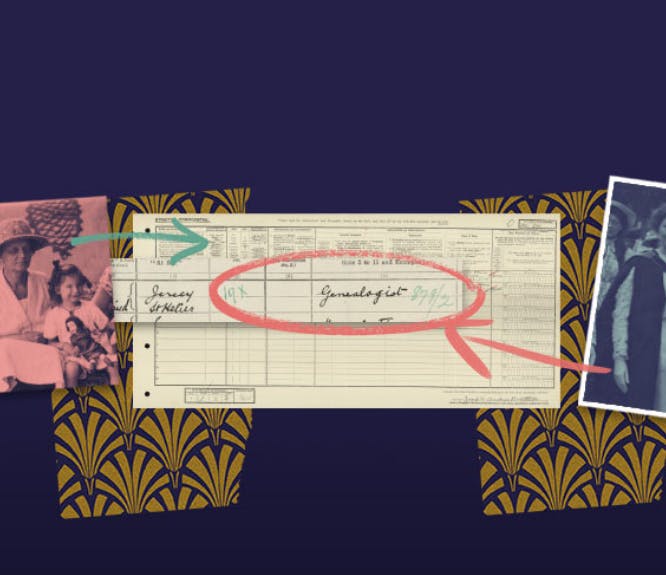
Genealogists in the 1921 Census of England and Wales: discover a profession that stands the test of time
History Hub
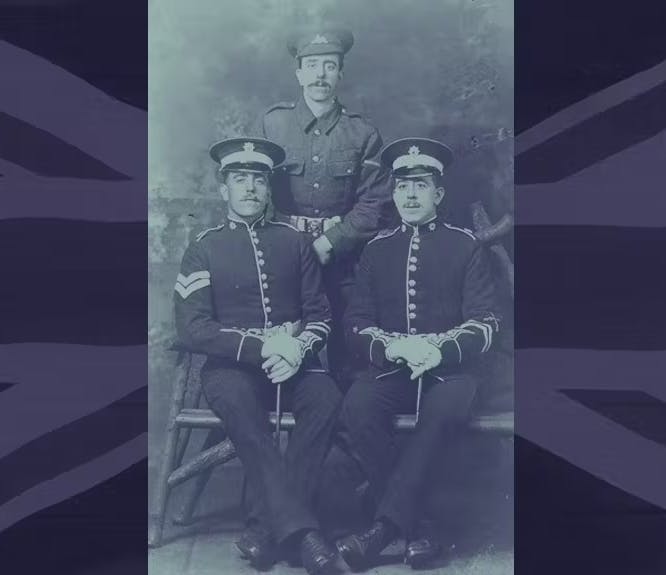
Five must-read books to discover more about the British Army during the First World War
History Hub
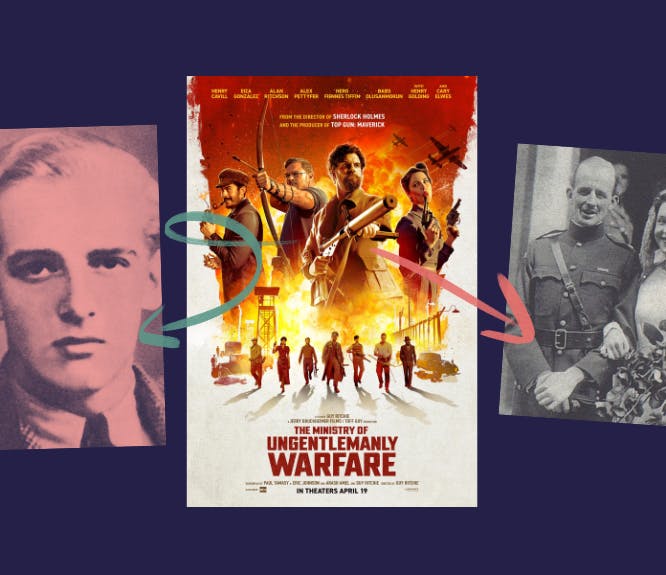
The incredible true story behind The Ministry of Ungentlemanly Warfare
History Hub
